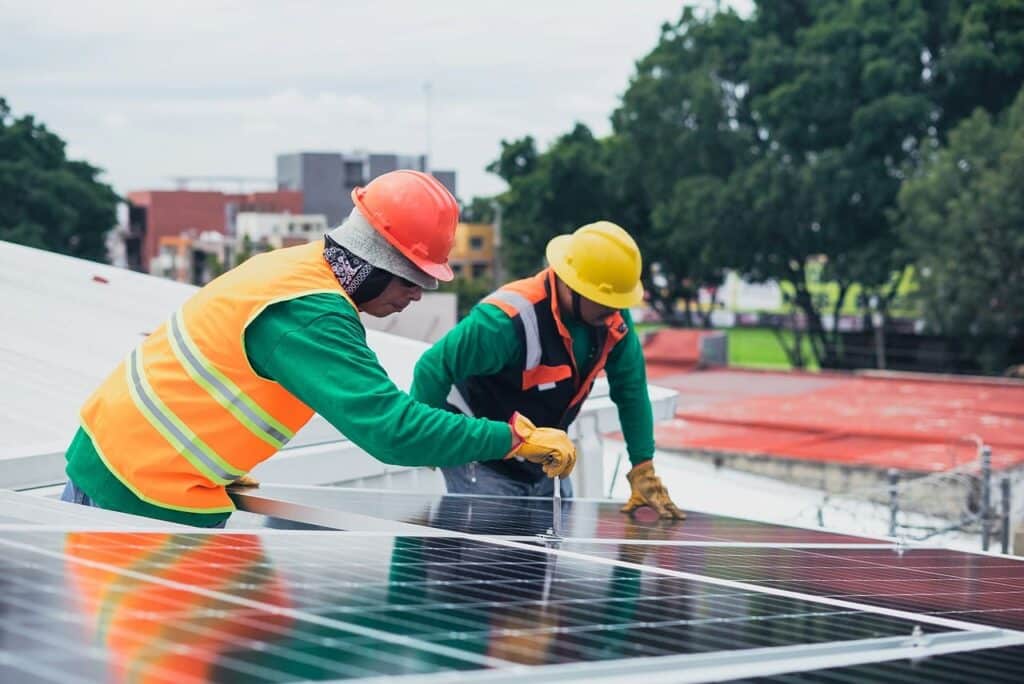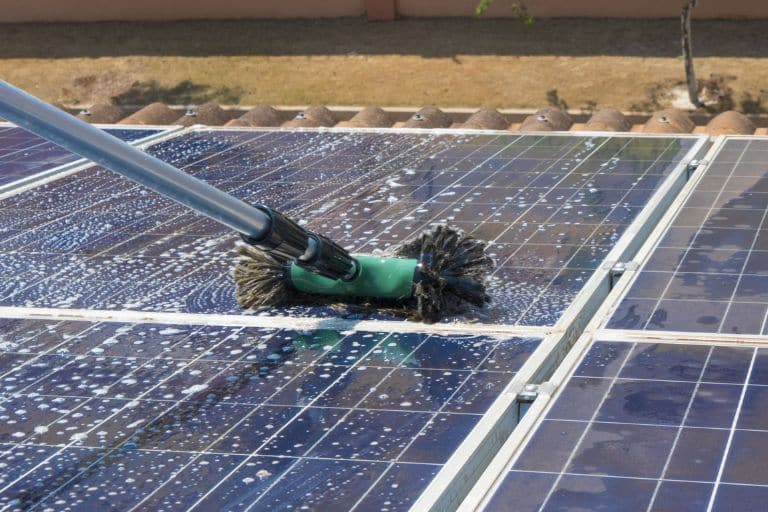Regular Solar Panel Maintenance in the UK : Why It Matters?
Regular Solar Panel Maintenance in the UK Climate is essential for maximizing efficiency and longevity. Solar energy has emerged as one of the most popular and reliable renewable energy sources in the UK. As more homeowners invest in solar panels to reduce energy costs and support environmental sustainability, it’s crucial to understand that proper maintenance plays a key role in ensuring optimal performance over time.
In the UK, where weather conditions can vary, regular solar panel maintenance becomes even more essential to ensure that your investment continues to perform at its best. In this article, we’ll explore the importance of maintaining solar panels in the UK climate and the steps you can take to protect your system and optimize its performance.

1. Why Solar Panel Maintenance Is Essential
Solar panels are built to be durable and reliable, but like any other home system, they require regular maintenance to keep performing at their peak. Over time, factors such as weather conditions, dirt accumulation, and wear and tear can reduce the efficiency of your solar panel system.
Regular maintenance can help:
- Ensure that the panels are generating as much electricity as possible
- Detect and fix any minor issues before they become costly problems
- Extend the lifespan of the solar panel system
- Improve the overall return on investment (ROI) for your solar energy system
In the UK, where rain, wind, and snow can affect solar panels, maintenance is especially important to ensure optimal performance year-round.
2. Impact of the UK Climate on Solar Panels
While solar panels are designed to withstand the UK’s climate, they are still subject to the elements. The country’s variable weather patterns, especially the frequent rainfall, wind, and occasional snow, can affect the efficiency of solar panels in various ways:
- Dirt and Debris: Rain can wash away dust and dirt from your panels, but it doesn’t always clean them thoroughly. Accumulated dirt, debris, and leaves can block sunlight from reaching the panels, reducing energy production.
- Snow and Ice: During the winter months, snow and ice can accumulate on solar panels, blocking sunlight and causing temporary power generation issues. If not cleared, heavy snow can also put pressure on the panels and the mounting system.
- Bird Droppings and Moss: In some areas, particularly near trees, bird droppings and moss growth can accumulate on panels. These can obstruct the surface, further reducing efficiency.
Maintaining your solar panels ensures that these weather-related challenges are managed and that your system remains effective throughout the year.
3. Steps for Solar Panel Maintenance
To ensure your solar panel system works efficiently and lasts longer, here are a few important maintenance tasks to consider:

a. Cleaning the Panels
Keeping your solar panels clean is one of the most important aspects of maintenance. Dirt, dust, leaves, and bird droppings can block sunlight from reaching the panels, leading to a decrease in energy output.
- Cleaning Frequency: While it’s not necessary to clean your solar panels every month, two to three times a year is generally recommended, especially if your panels are located in areas prone to dust, debris, or bird activity.
- Cleaning Methods: You can clean the panels using a soft cloth and soapy water or a hose with a gentle spray. Avoid harsh chemicals or abrasive tools that could scratch the surface of the panels.
If you’re not comfortable cleaning the panels yourself, it’s best to hire a professional cleaning service.
b. Regular Inspections
Regular visual inspections can help detect problems early. Look for:
- Cracks, chips, or damage to the panels
- Loose or broken wires
- Signs of overheating or discoloration on the inverter
- Any physical obstructions or shading issues around the panels
If you notice any problems, it’s important to have them addressed as soon as possible. Even small issues, such as a damaged wire or a blocked panel, can lead to significant efficiency losses.
c. Check for Proper Angle and Positioning
The positioning and angle of your solar panels play a major role in their efficiency. Over time, panels may become misaligned or shifted due to wind or other weather-related factors.
- Angle: Ensure that the panels are angled correctly to maximize exposure to the sun, especially in winter months when the sun is lower in the sky.
- Positioning: Check that no new objects, such as overgrown trees or buildings, are casting shadows on the panels. Even partial shading can reduce the overall energy production of the system.
d. Monitor System Performance
Advancements in solar technology have made it easier to track the performance of your solar panel system. Many systems come with apps or monitoring software that allow you to:
- Track energy production in real-time
- Compare actual performance with expected performance
- Detect any performance drops or issues that need attention
Monitoring tools can help you spot problems before they become major concerns, and some systems even alert you when maintenance is required.
4. Professional Maintenance Services
While DIY maintenance is important, professional maintenance services can provide a more thorough inspection and ensure that your system is functioning optimally. Certified solar technicians can perform more detailed tasks, including:
- Testing the inverter and other components
- Checking for electrical faults or corrosion
- Performing a comprehensive cleaning that includes the roof and mounting system
- Ensuring compliance with local regulations and safety standards
Professional maintenance ensures that your solar panel system remains efficient and safe for years to come.
5. The Cost of Maintenance vs. the Benefits
One of the most common concerns for homeowners is the cost of maintaining their solar panels. However, the cost of regular maintenance is far less than the potential costs of repair or the loss of energy efficiency due to neglect.
- Cost of Maintenance: The average cost for solar panel cleaning and inspection ranges from £100 to £300 per year, depending on the size of your system and the service provider.
- Return on Investment: Regular maintenance helps maximize your solar energy production, ensuring that you continue to save on energy bills and increase the return on investment over the life of the system.
Conclusion: Keep Your Solar Panels in Top Condition
Regular maintenance is essential to ensure that your solar panels continue to provide clean, renewable energy efficiently, especially in the unpredictable UK climate. By cleaning the panels, inspecting the system, and addressing minor issues before they escalate, you can extend the lifespan of your solar system, reduce repair costs, and continue to benefit from lower energy bills.
Taking the time to properly maintain your solar panels is a smart investment that ensures the long-term success of your renewable energy system, helping you stay energy-independent while contributing to a more sustainable future.
